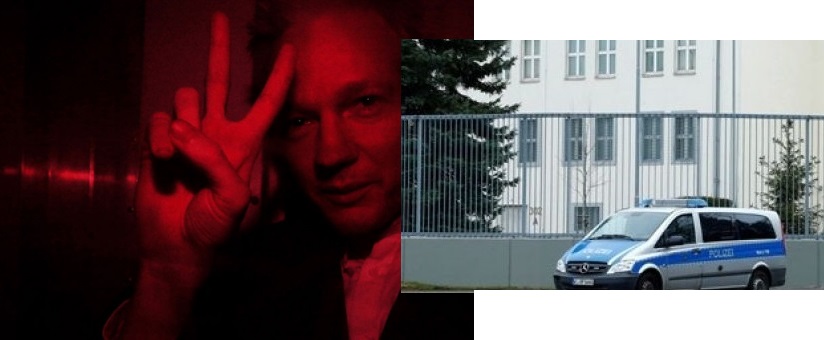The US Consulate in Frankfurt was reportedly used as a covert base for hackers in Europe, the Middle East and Africa. These hackers were given diplomatic passports with State Department cover, and were instructed to tell German customs officials that they were “technical consultants” working for the consulate.
In addition to the cover story, the documents exposed how CIA hackers working under the cover of the State Department, are issued with diplomatic “black” passports.
According to the documents the consulate is home to the Center for Cyber Intelligence Europe (CCIE) and is know for hacking operations. Once in Frankfurt, hackers would target specific companies with USB sticks containing malware, and insert the sticks into a computer to infect or exfiltrate data anywhere in the Schengen area.
“Germany is central to the rest of the European Union, which minimizes overall travel time to reach physical locations in any other country there. Since the types of attacks described [in the WikiLeaks documents] required physical access to computers, being able to get there quickly via train or other forms of transportation would be vital,” Nathan Wenzler, chief security strategist at the security consultancy AsTech Consulting, told Fox News.
“Even a one-hour flight to reach a neighboring major city would allow for faster response than, say, a seven-hour flight from the east coast of the US,” he said.
“Trying to hack a system that’s connected to the Internet doesn’t really require physical proximity, so, like most nation-state intelligence agencies, it’s easier and more effective to just run those sorts of attacks from within your own borders,” Wenzler said.
“Frankfurt would allow for a more ‘social engineering’ style of hacking, where the agent would need to gain physical access to a system by convincing the people around it to allow the agent to use it. Since that would require moving people around to get to those destinations, having a central location like Frankfurt to use as a hub for your operations just makes logistics more simple and reduces the time needed to execute,” Wenzler added.
One attack system, Fine Dining, reportedly has 24 decoy applications to display videos, slideshow presentations, fake virus scanners, or computer games, while specially designed malware attacked the system.
Described as “the largest intelligence publication in history”, WikiLeaks dumped some 9 000 documents revealing such hacking practises employed by the CIA. According to an expert who examined the leaks, they appeared legitimate, the Associated Press reported.
WikiLeaks said the “Vault 7” release exposes the “entire hacking capacity” of the American intelligence organisation, known as “Year Zero”, including covert hacks into devices like iPhones, Android phones, Microsoft Windows and even Samsung TVs, turning them into stealth microphones.
At the end of 2016, the CIA’s hacking unit counted more than 5 000 registered users who had produced thousands of hacking systems, trojans, viruses and “weaponised” malware.
“The CIA had created, in effect, its “own NSA” with even less accountability, the whistleblower pointed out. Wikileaks questioned whether such a massive budgetary investment on duplicating the capacities of a rival agency could be justified.
The source of the leak reportedly came after the CIA lost control of most of its hacking arsenal, WikiLeaks noted.
The State Department would not comment on the leaks or on whether the documents were authentic. “As a matter of policy, the US State Department does not comment on specific intelligence allegations,” the Frankfurt Consulate told The Local
The leaks also revealed that by 2014, the CIA had started looking into how to infect vehicle control systems, potentially for the purpose of conducting undetectable assassinations.
Wikileaks editor, Julian Assange, remarked: “There is an extreme proliferation risk in the development of cyber ‘weapons’. Comparisons can be drawn between the uncontrolled proliferation of such ‘weapons’, which results from the inability to contain them combined with their high market value, and the global arms trade. But the significance of “Year Zero” goes well beyond the choice between cyberwar and cyberpeace. The disclosure is also exceptional from a political, legal and forensic perspective.”
Germany’s chief federal prosecutor’s office said it would review new documents and launch a formal investigation “if evidence” is obtained. A spokesman for the federal prosecutor’s office said: “We’re looking at it very carefully. We will initiate an investigation if we see evidence of concrete criminal acts or specific perpetrators.”













No comments.
By submitting a comment you grant Free West Media a perpetual license to reproduce your words and name/web site in attribution. Inappropriate and irrelevant comments will be removed at an admin’s discretion. Your email is used for verification purposes only, it will never be shared.